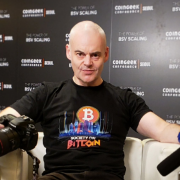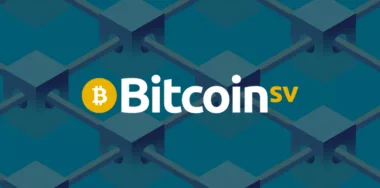| Getting your Trinity Audio player ready... |
Dr. Craig Wright has criticized the new Binance Smart Chain platform, calling it “not decentralized in any manner,” and “puffery designed to mislead regulators.” The brand new blockchain project, designed as a smart contract platform to compete with Ethereum, released its whitepaper in April.
Binance Smart Chain (BSC) is a separate-but-linked blockchain to Binance Chain. Binance Chain, launched in February 2019, was designed in part to run the Binance DEX, a “decentralized exchange” for digital assets. According to its original announcement, the DEX would provide a user-friendly interface for users to exchange assets while maintaining control over their funds and without needing to supply identification or even an email address.
BSC, on the other hand, is built to handle the heavier data processing load required for “smart contracts.” It has a consensus algorithm that combines Delegated Proof-of-Stake (DPoS) and Proof-of-Authority (PoA)—Binance Coin (BNB) holders would use staked coins to “vote” for 21 “validators” every 24 hours who would be trusted to confirm transaction blocks. According to Binance’s BSC whitepaper, this would allow block validation times of five seconds, safeguarded against attacks by potential “malicious validators.”
Making it clear that Binance Smart Chain is intended as an Ethereum competitor, the whitepaper mentions Ethereum compatibility several times “to take advantage of the relatively mature applications and community,” and mentions that BNB (as the native token on the “parallel” Binance Chain and the new BSC) will be used as “gas” to deploy smart contracts.
Dr. Craig Wright: ‘It is not decentralized’
Critiquing both Binance and its new platform, Dr. Craig Wright claimed the platform could not live up to its own promises at a fundamental level.
“It is not decentralized as they call it in any manner. The reality is that Binance is the owner and controller of the system and the fact it is run in many servers means that it is distributed not decentralized. There is in fact no such thing as a decentralized exchange. You send your money into the exchange and they have custody or control. This is merely puffery designed to mislead regulators.”
“Their White Paper is just a whole lot of jargon thrown together. It’s not about creating a technical solution at all. It’s about pumping a price.”
“The nature of smart contracts is itself just a pipedream. There are automated payment systems but the reality of this code is law idea is just one used by people scamming others into a false belief of a possible future. Even the concept of dApps is vapourware, none actually exist or have ever existed.”
Again, code is not law
Furthermore, Dr. Wright added to his previous criticisms of the Proof-of-Stake (PoS) economic model and reiterating that it was neither a new idea nor legally viable according to Binance’s claimed “freedom of money” principles.
“It is simply control by a holder of a security and this is no different to shares on databases. They try and promote the concept that it is more democratic but proof of stake is anything but democratic. The individuals holding do not vote individually but rather vote in a share structure minus any regulatory control. Worse than that, it is a share structure where the company constitution is hidden.”
He pointed to a paper by Timothy Wu of Columbia University from 2003, which noted the limitations of the “code is law” paradigm by pointing out that its systems are still subject to human law compliance, and that computer code is a poor substitute for the political/legal process.
There’s definitely no love lost between Dr. Wright and Binance (the exchange delisted Bitcoin SV in April 2019, purportedly in retaliation to Wright’s libel lawsuits against prominent digital asset community members). But he went on to elaborate on the reasons why the company’s new contract platform was infeasible and unappealing to mainstream processes.
Good news for BSV, the only scalable and fully compliant blockchain platform
There are a number of reasons to think a new smart contract platform from Binance is a bullish sign for BSV, despite initially appearing to be a brand-named competitor.
For one, it’s a sign that confidence in Ethereum is waning. The platform’s name has become almost synonymous with “smart contracts” since the idea first emerged in 2014. However it has encountered various difficulties with rogue code (The DAO), speed and scalability (CryptoKitties, several ICOs) and uncertainties over planned changes to its base protocol that potentially disrupt its economic model.
Many project leaders building on Ethereum have already made it clear that they plan to set up redundancies on other platforms as the network approaches the unprecedented (and still hotly debated) move to PoS from PoW sometime this year. This would completely overturn Ethereum’s current Proof-of-Work economic model, which pays transaction processors in return for their effort and investment.
The Binance brand may not automatically appeal to mainstream finance or enterprise, though—and probably not to governments. Dr. Wright has in the past accused Binance of being a “money laundering service” and a “criminal shadow banking facility.”
BSV is explicitly appealing to enterprise, government and similar tier users. If Ethereum looks shaky and Binance is the nearest alternative home for its projects, BSV’s value proposition looks healthier.
New to blockchain? Check out CoinGeek’s Blockchain for Beginners section, the ultimate resource guide to learn more about blockchain technology.








